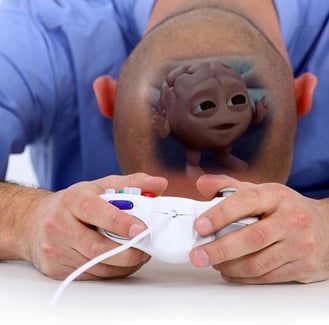
A few days ago, there was a post on the Arizona Melee Community group on Facebook. A player by the tag “Link” asked if anyone in Tempe wanted to play. Needing more practice, I didn’t hesitate at the opportunity to learn. A few more people asked if they could come as well and I figured why not since there would be more people to practice with. Players by the tags “Mr. N”, “Nerin”, and “Penguin” showed up as well. We practiced for all of a few hours, but in that time, I learned a lot about something that I never really thought about when playing Melee. Instead of learning to play with my hands, I learned to play with my brain.

You might be asking yourself, “What’s the difference and what exactly does that mean?”. Well, when you’re playing a game for a relatively long time, you’re going to get stuck in habits and you’re going to find ways to play against someone that may not be completely optimal. When I was playing with my hands, I was doing actions that didn’t have a meaning and didn’t have a follow up to them. I didn’t think about anything else other than “How can I hit them and take the stock?”. This is probably one of the worst mentalities that you could have and reason being is because you don’t have a plan of advancing in the game. You’re thinking about the immediate situation, which isn’t always a bad thing, but not thinking of the consequences is dangerous and careless.
Thinking with your head is assessing a situation, seeing where you need to move, what can you do to make the situation feasible, and what possible options are there. Since Melee is a fast-moving game, you’ll need to be assessing situation after situation. This may be difficult, but in those situations, you have to group everything into what is optimal. Realizing this and knowing how to counteract specific situations (if your opponent is: off the stage, above you, below you, etc.). Learning how people play and taking advantage of their bad habits mid-match is something I personally have a lot of trouble with, but once learned, it’s a great skill to have on deck. Below shows the amount of inputs necessary to keep up with today's standard.
https://www.youtube.com/watch?v=vDjlV6Qtb90
You can be technical in a game. Sure. Learning how to play against someone is something completely different. Learning how to deal with tournament jitters is all about practice and investing time into the game in order to learn how people act, what common approaches are, and how to deal with that. Unless specified, I’ll be making weekly posts on how to improve, be it mindset, getting tilted, etc. If there’s anything you, the reader, want me to cover or explain, you can email me at alee@uat.edu. Thank you and I hope to see you on the next post of The Road to Improvement!


